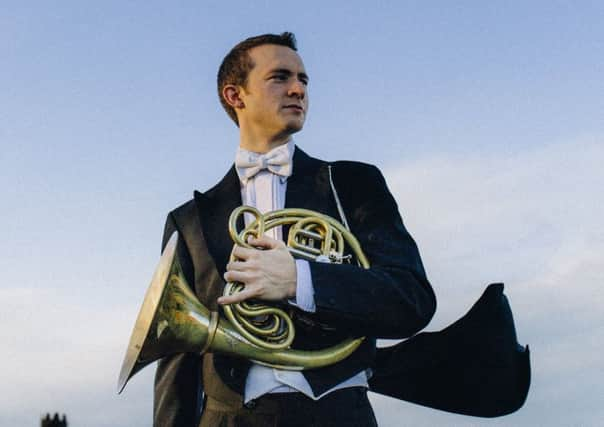Music review: The SCO & Alec Frank-Gemmill, City Halls, Glasgow


The SCO & Alec Frank-Gemmill, City Halls, Glasgow ****
I’m not dissing fine performances of Michael Haydn’s sturdy Präludium and Fugue in D, or Leopold Mozart’s Sinfonia in G, both well-represented by the gutsy, lustrous playing from an SCO on gut strings and with natural horns under veteran early music specialist Reinhard Goebel. But neither matches the unique thumbprints of WA Mozart or JC Bach, whose music produced the genuine delights of the evening.
It was in the younger Mozart’s “Paris” Symphony, his ballet music for “Idomeneo” and Bach’s Overture and Suite from his last opera Amadis de Gaule that magic happened. Goebel’s boisterous baton style elicited a scintillating riot of colour from the symphony, and characterful rhythmic élan in the theatre pieces.
Advertisement
Hide AdAdvertisement
Hide AdThis was also the swansong of SCO principal horn Alec Frank-Gemmill, playing Mozart’s Horn Concerto No4 on a valveless instrument, impressive for the lip and fist gymnastics that enabled him to negotiate the music’s virtuosity and fill it with flirtatious musicality. But does Mozart really benefit today from this instrument’s idiosyncratic tonal inflexions? I think he’d opt for a modern horn. - Ken Walton